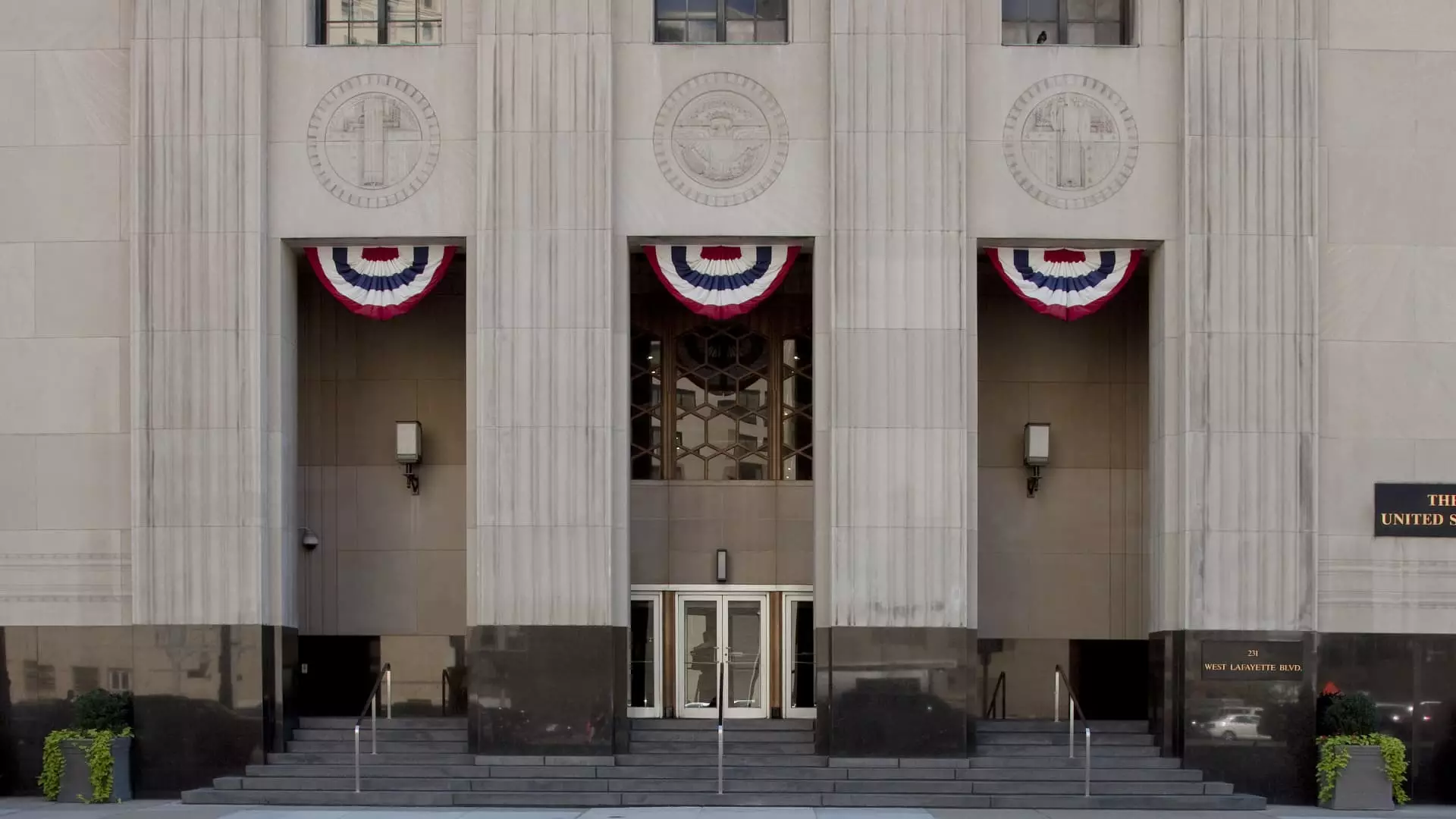In a shocking revelation that has sent waves through both scientific communities and national security discussions, two individuals associated with academia have been charged with a deeply troubling crime: smuggling a biological pathogen into the United States. Yunqing Jian, a postdoctoral fellow at the University of Michigan, and her boyfriend, Zunyong Liu, now find themselves at the center of a case riddled with deception and dire implications. The fungus in question, Fusarium graminearum, is notorious for its capacity to wreak havoc on crops, leading to substantial economic losses and even potential health risks to livestock and humans alike. Yet, what is more concerning than the act of smuggling itself is the apparent disregard these individuals had for the broader consequences of their actions.
A Dangerous Gamble for Scientific Curiosity
The irony of this situation cannot be overstated. Here we have scholars, individuals who should represent the pillars of ethical scientific inquiry, opting to forsake their integrity for what appears to be an unbridled pursuit of knowledge. Liu, upon entering the United States, was caught red-handed when customs officials discovered the pathogens concealed in plastic baggies within his backpack. Initially, he feigned ignorance, claiming someone had planted the evidence. However, his subsequent admission revealed a calculated decision to smuggle the pathogen—an act that throws into question the ethical frameworks that guide scientific exploration.
The fact that Liu—let’s not forget, a researcher—intended to use these pathogens for research at an esteemed institution raises unsettling concerns. How could one justify such a decision? Does the pursuit of knowledge supersede ethical considerations and the potential for catastrophic outcomes? As center-wing liberals, we must recognize that harnessing nature’s forces for the greater good is a hallmark of scientific inquiry, yet this case exemplifies the darker side when aspiration morphs into recklessness.
The Allegations of Deception Unraveled
The unraveling of the couple’s elaborate scheme was marked by damning evidence, including messages sent through WeChat discussing smuggling seeds into the U.S. Ironically, these communications contained details about hiding the materials in their boots—a chilling reminder that the lengths people may go to for the sake of curiosity can lead to dangerous repercussions. In attempting to bypass established regulations, Jian and Liu have showcased an alarming aspect of human behavior; that is, the willingness to prioritize personal ambition over the society’s safety.
Moreover, Jian’s attempts to distance herself from Liu’s actions during investigations only added layers of complexity to the case. It showcases a troubling dynamic where individuals assume a lack of accountability for their choices, as if the ethical implications of their actions are a mere afterthought. The absence of a collective moral compass guides them down a perilous path, where knowledge is no longer pursued with responsibility, but rather manipulated as a tool for self-serving objectives.
The Broader Implications of Their Actions
Beyond the immediate legal ramifications for Jian and Liu, this case strikes at the very heart of public trust in scientific endeavors. Research institutions like the University of Michigan uphold principles of transparency, ethics, and a commitment to the public good. Yet, their actions risk tarnishing the reputation of countless dedicated scientists striving to advance knowledge responsibly. When a failure of trust emerges, it jeopardizes funding, collaboration, and the overall fabric of cooperation within the scientific community.
Moreover, Fusarium graminearum’s capability to cause vast economic damage underscores the peril of such irresponsibility. The fungi could easily escape the confines of a lab, leading to agricultural crises impacting food supply chains, national economies, and global markets alike. In an age where biotechnological advancements walk hand-in-hand with ethical responsibilities, this case amplifies the pressing need for stringent regulations and ethical guidelines designed to safeguard society against the potential fallout from reckless researchers.
Public and Institutional Responsibility
The University of Michigan, responding assertively to the situation, emphasized its commitment to acts that protect national security and maintain the integrity of its research missions. But is a condemnation enough? As we scrutinize this case, the underlying question remains: How can institutions better cultivate an environment where ethical considerations are intrinsic to scientific ambitions?
A rush to knowledge should never dismiss the sanctity of life and public welfare. The pitfalls of ambition unrestrained should serve as a wake-up call, pushing academic institutions to reassess their responsibilities toward safety and integrity in research practices. As a society, we must advocate for enhanced oversight and an ethical framework that supports scientific inquiry while protecting against the potential dangers that these endeavors may entail.


Leave a Reply